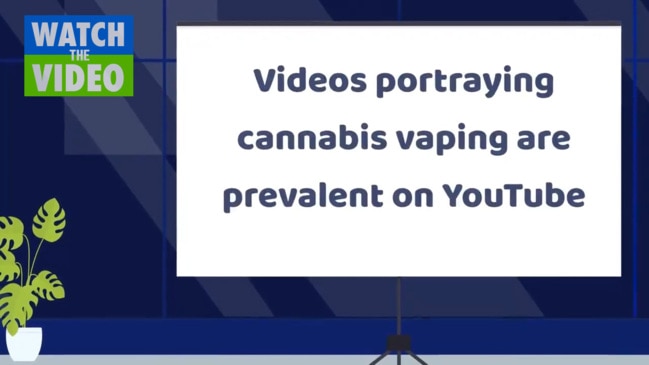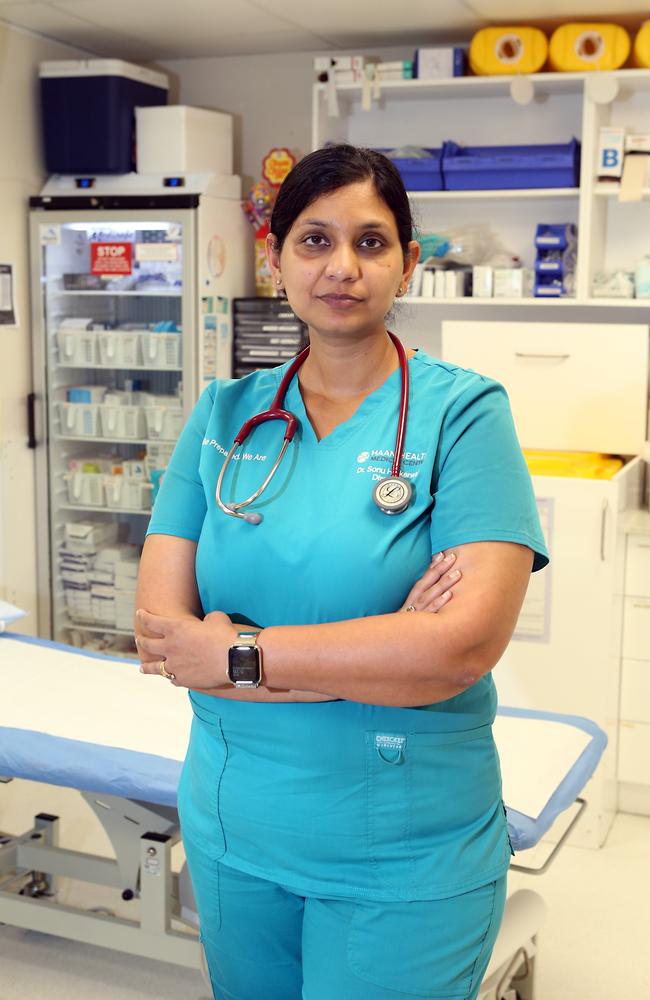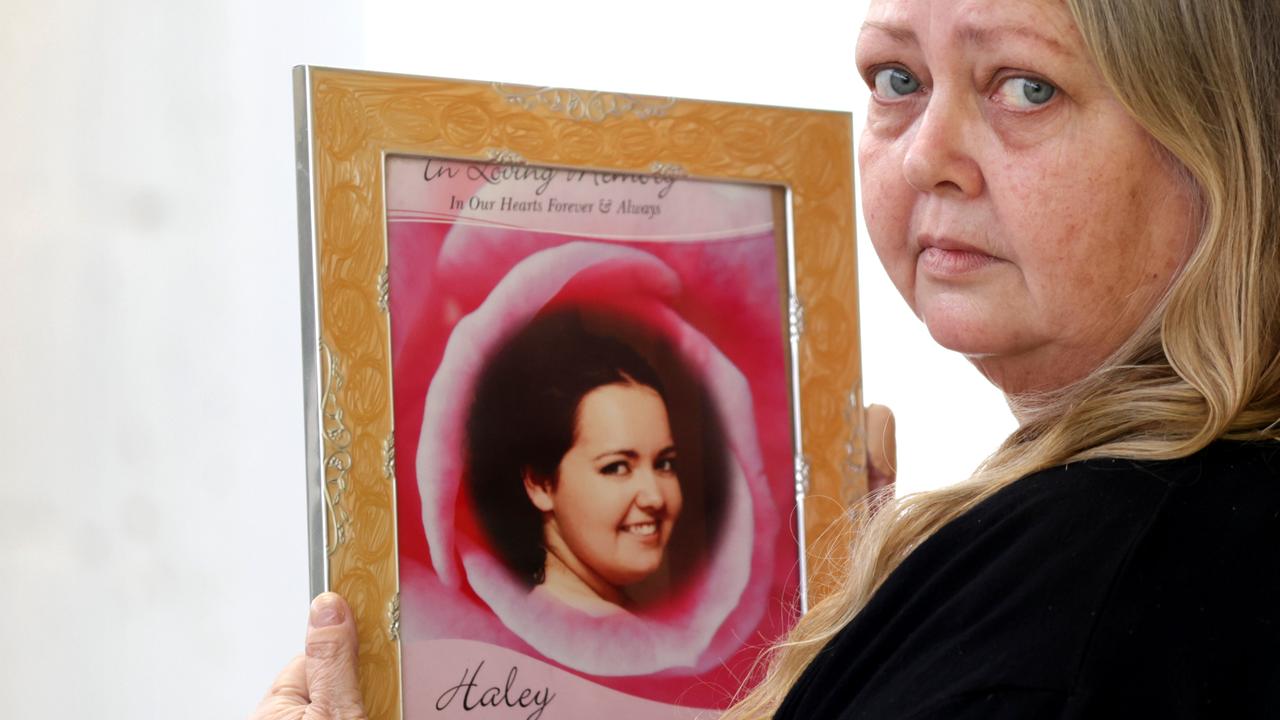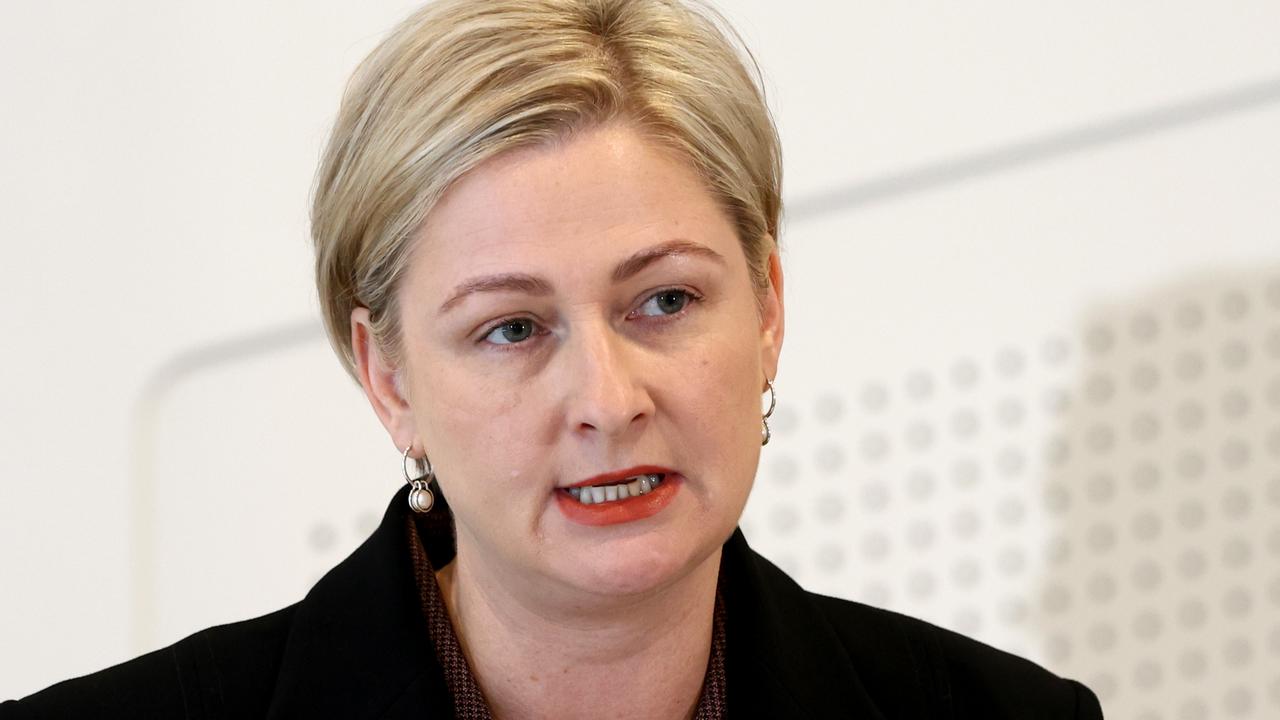Lung damage, memory loss, developmental delays: Shock toll of vaping epidemic on our kids
Queensland GPs are reporting an alarming increase in children requiring medical intervention for harmful conditions from vaping, including lung damage, slow brain development and memory loss.

QLD News
Don't miss out on the headlines from QLD News. Followed categories will be added to My News.
Queensland GPs are reporting an alarming increase in children requiring medical intervention for harmful conditions related to vaping, as Education Minister Grace Grace finally concedes the issue “seems to be taking off” in schools.
But when asked why Queensland could not take the lead on the issue rather than requiring a national approach, Ms Grace claimed tobacco, vaping and alcohol education programs being delivered in schools were enough at the moment.
Gold Coast Medical Association president and GP Dr Sonu Haikerwal said she was “horrified” when kids as young as 10 admit to her that they’ve used vapes, with the long-term effects including lung damage, slow brain development and memory loss.
“Vaping is a nicotine addiction, it’s highly addictive and highly dangerous. The new trend in young people is very worrying,” she said.

She said people had become naive about vaping as many believed the misconception that it was a “cleaner version” of smoking.
“It’s the same kind of addictive substance to be honest, just a different form,” she said.
“There just isn’t that stigma or awareness attached to it about how dangerous it is.
“I don’t think young people should touch a vape, it should be illegal.”
Education Minister Grace Grace on Monday again likened the issue to smoking, and stated her preference to canvass other education ministers for a national approach to the issue.
“Vaping seems to be taking off at the moment and it is concerning and obviously if there’s a nationally consistent approach, a training program, but obviously we can’t do it alone,” she said.
“Society needs to really come down heavy on these devices,” Ms Grace said.
“I’ve never actually even held one to be honest with you, but on these devices that people seem to be getting their hands on, we need to regulate that and ensure that we have a consistent approach.”
Dr Maria Boulton, chair of the AMA Queensland Council of General Practice and a GP in Windsor, said there needed to be more regulation around vaping being marketed to children.
“It’s deeply concerning that it’s being displayed as cool on TV. It definitely shouldn’t be marketed to young kids, there needs to be regulation around that,” she said.
Short and long-term effects of vaping and nicotine addiction have already become clear in young adults, including lung irritation and damage, slow brain development, affected memory, concentration, learning, self-control, attention and mood.
Dr Boulton said that even vapes that didn’t contain nicotine had been found to affect lung function. “There are many ways to quit smoking, and vaping is just not one of the treatments doctors will advise because it’s so addictive,” Dr Boutlon said.
Meanwhile, GP and chair of Royal College GPs Queensland Dr Bruce Willett said that much of the fear surrounding vapes generally came from the unknown.
“Our main concern is that we don’t know many of the long-term effects yet,” he said.
“These kids are buying them off the internet where there’s even less regulation and we have no clue what’s in them.”
Queensland vaping researcher Carmen Lim said deaths and hospitalisations from vaping were likely to eventually hit Australia, following in the footsteps of deadly habit gripping the US. Ms Lim from the National Centre for Youth Substance Use Research, Faculty of Health and Behavioural Sciences at The University of Queensland, warned that parents needed to be aware that the natural progression for some kids who vape flavoured nicotine products will progress to using a cannabis vape.
“We are lagging behind and have not yet got the studies or data here to show the real dangers of vaping, but trends show we follow what is going on overseas and things are not good,” she said.
The PhD student has just published a paper on the rise of cannabis vaping in high schools in North America, which found more than twice as many high schoolers have tried a cannabis vape in 2020 than in 2013.
Opposition Education spokesman Christian Rowan said: “Queensland kids should not be vaping in schools.
“The state government needs to do all it can to get these products out of our schools,” he said.
“The fact they are so widespread says it all really, the government simply isn’t doing enough to deal with vaping in schools. The state government needs to start listening to parents and teachers and actually do something about it, as opposed to its usual ‘say something, do nothing’ performance.”




